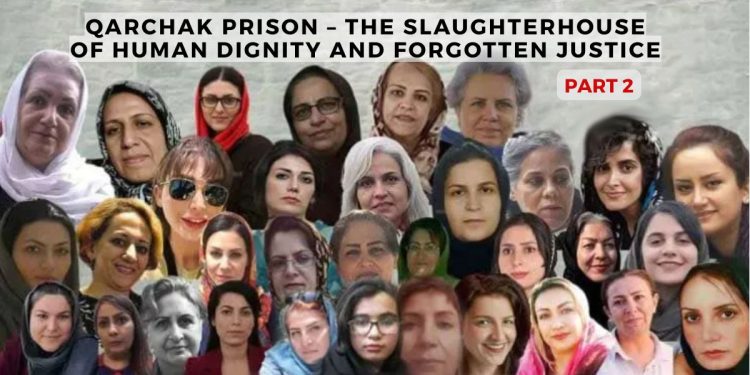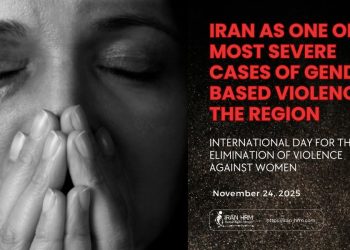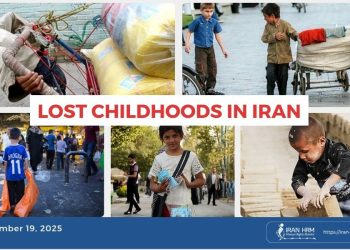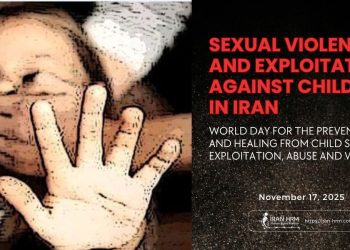The transfer of women political prisoners from Evin Prison to Qarchak in Varamin is one of the clearest examples of the regime ruling Iran’s systematic policy of repression. These transfers are not the result of overcrowding or administrative needs but deliberate punitive measures designed to break the resistance of women political prisoners. Especially after the Israeli missile strike on Evin in October 2022, this practice intensified, sending many women political prisoners to Qarchak – rightly known as the “Hell for Women.” This report, based on documented evidence and testimonies, examines the scope of this policy and its human and legal consequences.
Historical Background of Transfers
Evin Prison in Tehran, though notorious as a symbol of repression, is not comparable to Qarchak. Following widespread protests in recent years, and particularly after the 2022 attack on Evin, the regime decided to transfer many women political prisoners from Evin to Qarchak.
The purpose of these transfers is clear:
• To separate political prisoners from the support networks of their families and independent lawyers.
• To place them among ordinary prisoners with violent crimes, increasing threats and insecurity.
• To break the spirit and resilience of women activists by depriving them of minimum human standards.
According to informed sources, these transfers were often carried out without notifying families. In many cases, prisoners were held for weeks in a state of “enforced disappearance.”
Case Study: Arghavan Fallahi

One of the most emblematic cases is that of Arghavan Fallahi, a civil activist and political prisoner. After her arrest, she remained in total incommunicado detention for an extended period, with her family unaware of her whereabouts. This constitutes a clear case of “enforced disappearance,” recognized in international law as one of the gravest violations of human rights.
It was eventually revealed that she had been transferred to Qarchak Prison. Like many others, she has faced denial of medical services and severe psychological pressure.
Harsher Conditions in Qarchak
Although Evin is infamous worldwide, the regime transfers women political prisoners to Qarchak for harsher punishment, turning it into a full-fledged place of exile:
• Inhumane infrastructure: Qarchak consists of abandoned warehouses later converted into a women’s prison.
• Severe overcrowding: More than 1,200 inmates are confined in a facility built for fewer than 500.
• Violation of separation of crimes: Political prisoners are held alongside dangerous criminals.
• Deprivation of visits: Families are repeatedly denied visits or subjected to humiliating inspections.
• Restricted access to lawyers: Legal counsel is virtually impossible.
Legal Analysis
The transfer of women political prisoners from Evin to Qarchak and their detention under inhumane conditions flagrantly violates international instruments:
• Article 9 of the ICCPR: Prohibition of arbitrary detention and enforced disappearance.
• Article 10 of the ICCPR: Requirement of humane treatment of all prisoners.
• Article 7 of the ICCPR: Prohibition of torture and cruel treatment.
• International Convention for the Protection of All Persons from Enforced Disappearance: Prohibition of enforced disappearance and obligation of states to clarify the fate of detainees.
• Nelson Mandela Rules (UN Standard Minimum Rules for the Treatment of Prisoners): Principle of separation of crimes and prohibition of punitive transfers.
Human and Social Impact
The punitive transfer of women political prisoners to Qarchak has far-reaching human and social consequences:
• Family suffering: Lack of information about loved ones, restricted and humiliating visits, constant anxiety.
• Message of repression to society: Anyone who resists will be sent to the “Hell of Qarchak.”
• Deepening distrust in the judiciary: Using transfers as a tool of punishment shows that the judiciary functions solely as an arm of political repression.
Testimonies and Accounts
According to testimonies of former prisoners, transfer to Qarchak is viewed as “double punishment.” Negar Haeri, a lawyer and former inmate, described Qarchak as even worse than Section 209 of Evin – a place designed not for detention, but for humiliation and breaking spirits.
Women political prisoners have repeatedly protested this situation through letters and hunger strikes. Authorities have responded not by addressing concerns but by intensifying pressure and continuing punitive transfers.
Conclusion and Call to Action
The transfer of women political prisoners from Evin to Qarchak is part of an organized strategy of repression aimed at humiliating, weakening, and ultimately silencing dissenting women. This policy constitutes a blatant violation of fundamental rights and amounts to systematic torture.
We call on the UN Human Rights Council, the European Union, and all international bodies to:
• Launch immediate, independent investigations into punitive transfers and enforced disappearances.
• Guarantee the immediate release of women political prisoners and their return to facilities meeting minimum human standards.
• Prosecute judicial and security officials of the Iran regime for violations of international obligations.







